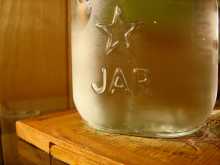Berkey Water Filtration Systems
I have wanted a Berkey for a couple of years, but haven’t been able to justify the price tag, which is currently about $235 for a basic four-filter system. Last week though, our well flooded and the water was tainted. It was sewer brown and not safe to drink, so we needed something we could count on to get it clean.
The Berkey filter filters out just about everything, except for heavy metals. We put that brown water into the Berkey, and while I knew it would come out safe to drink, I expected it to still be brown. Wrong! The water that came out after it filtered was crystal clear, like you would expect from bottled water.
The filter rate is slow and we are having trouble with the spout leaking, but I love the way the water tastes and the fact that I can feel completely confident when I drink the water or give it to my kids. We are using it for everything and replenishing our supply of stored water.
Overall, I like the Berkey but wish it was a little faster. The price seems steep for the quality of the housing, but I am glad we bought one and I look forward to many years of clean water with it.









